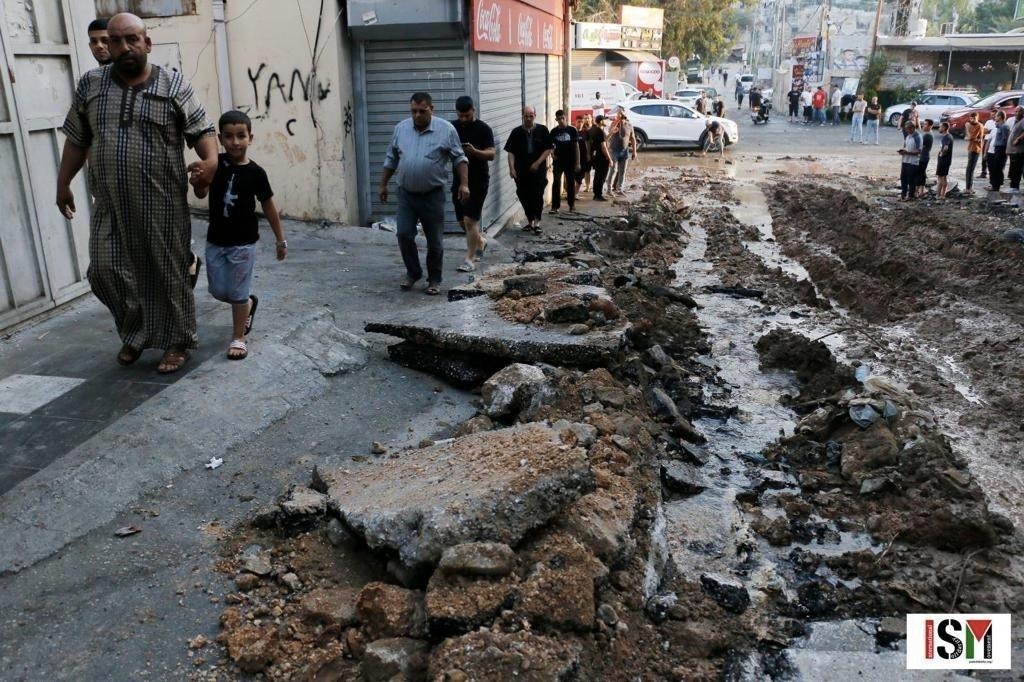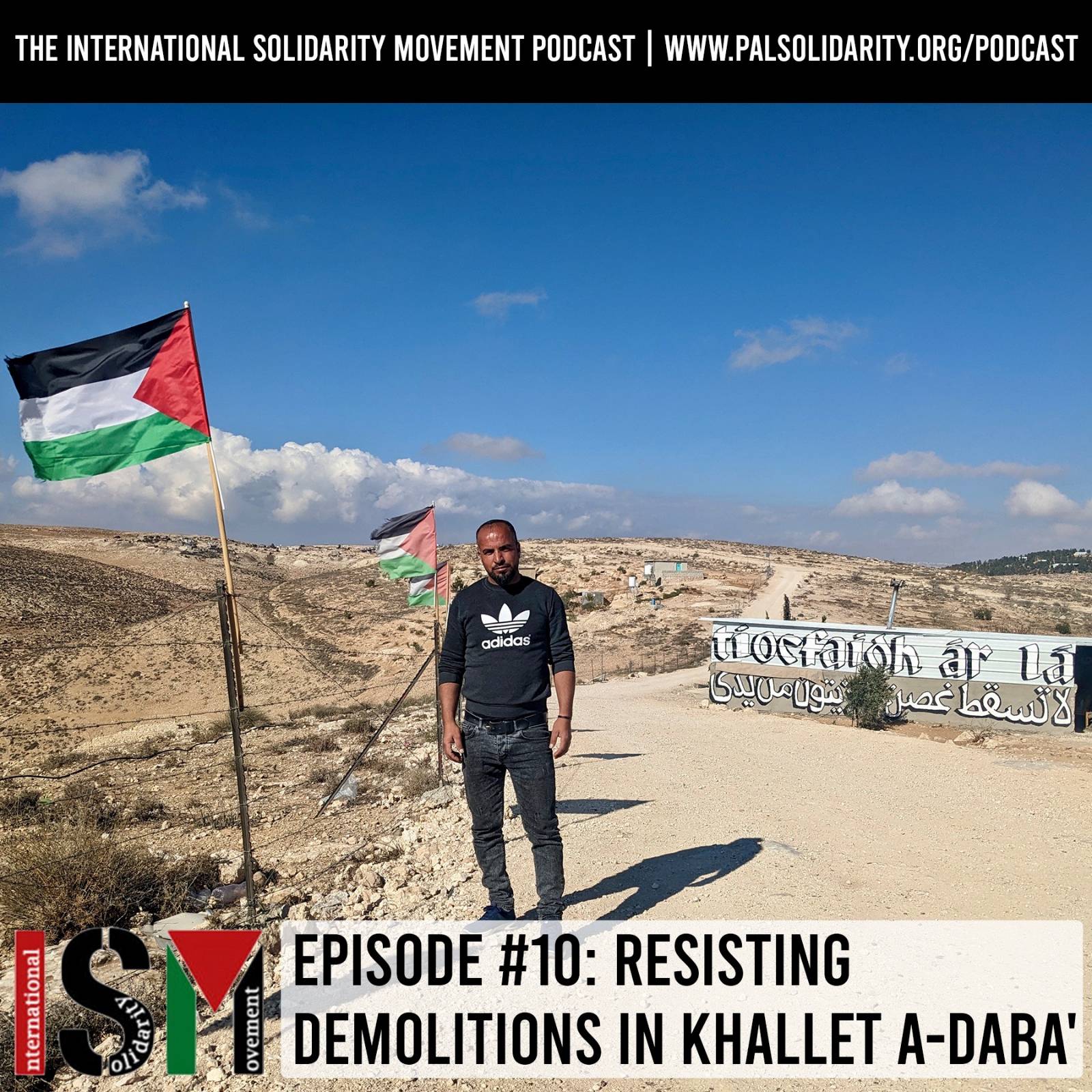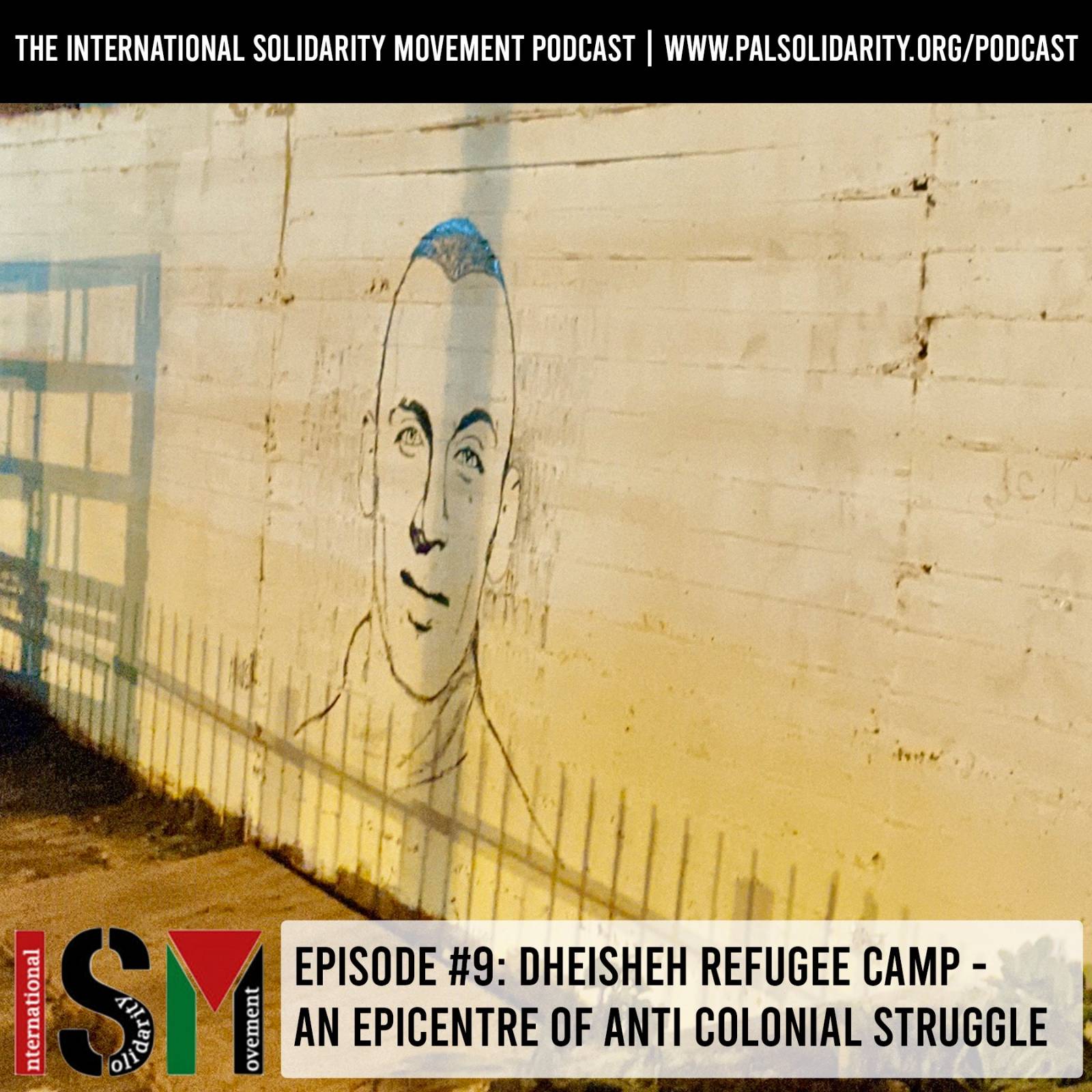-
Palestinian child looses leg after Israeli occupation invades Nur Shams Camp
On Monday July 24, 16 year old Mohammed Zendiq lost his leg during the invasion of Nur Shams refugee camp, near Tulkarem, by the Israeli Occupation Forces. In the 4 hour long invasion, the IOF accompanied by a military bulldozer caused serious material damage to the camp’s main streets and infrastructures as well as private […]
-
International Solidarity Movement Podcast episode 10: Resisting demolitions in Khallet-Al-Daba’
In Episode Ten of our podcast we speak to Jaber from the village of Khallet al-Daba’, in Masafer Yatta, in the South Hebron Hills. The Israeli supreme court has ordered the destruction of several villages in Masafer Yatta, and the occupation wants to destroy Khallet al-Daba’ first. The residents of Khallet al-Daba’ remain steadfast in […]
-
International Solidarity Movement Podcast episode 9: Dheisheh Refugee Camp – an epicentre of anticolonial resistance
In this episode Tom and Hazel speak to Sireen Khudairy, who is a resident of Dheisheh refugee camp in Bethlehem. For many years, Dheisheh has been a centre of determined resistance against the occupation. We spoke to Sireen in December 2022. And she told us about life and resistance in Dheisheh, and also in the […]
Action Alert An Nabi Saleh Apartheid Wall Arrests BDS Bethlehem Bil'in Cast Lead Demonstration Denial of Entry Ethnic Cleansing Farmers Gaza Global Actions Hebron House Demolition International law Israeli Army Jerusalem Live Ammunition Nablus Ni'lin Prisoner Ramallah Rubber-coated steel bullets Settlement Settlers Settler violence Tear-Gas Canister Video



